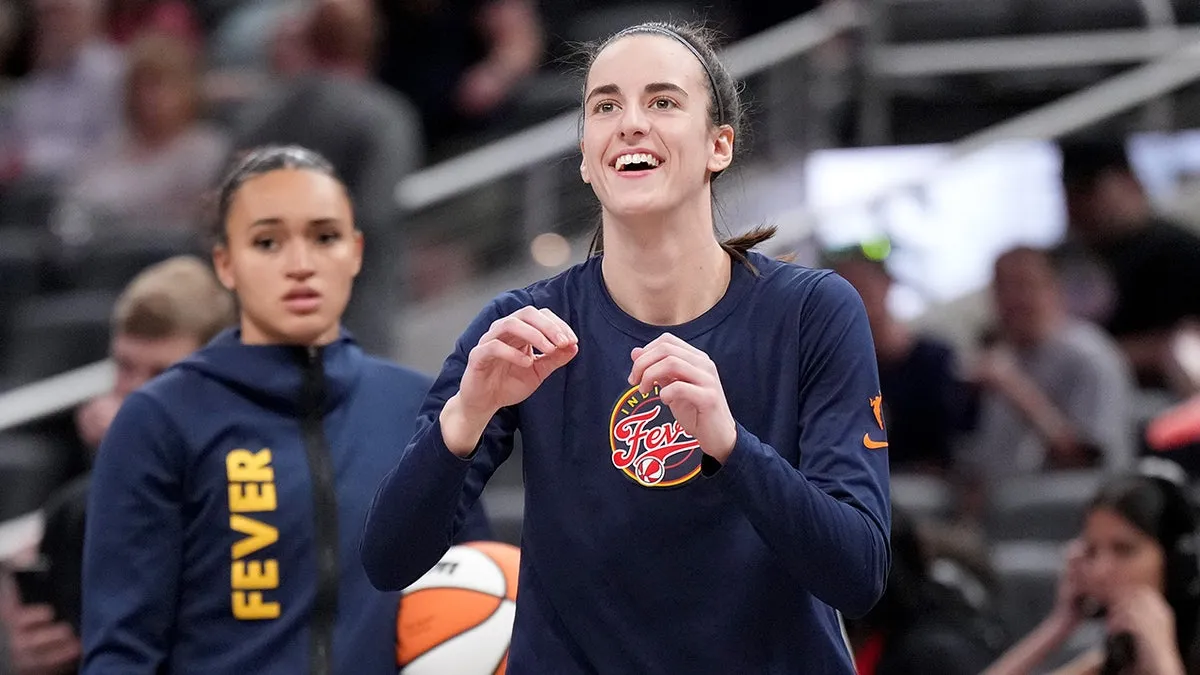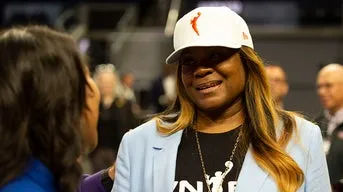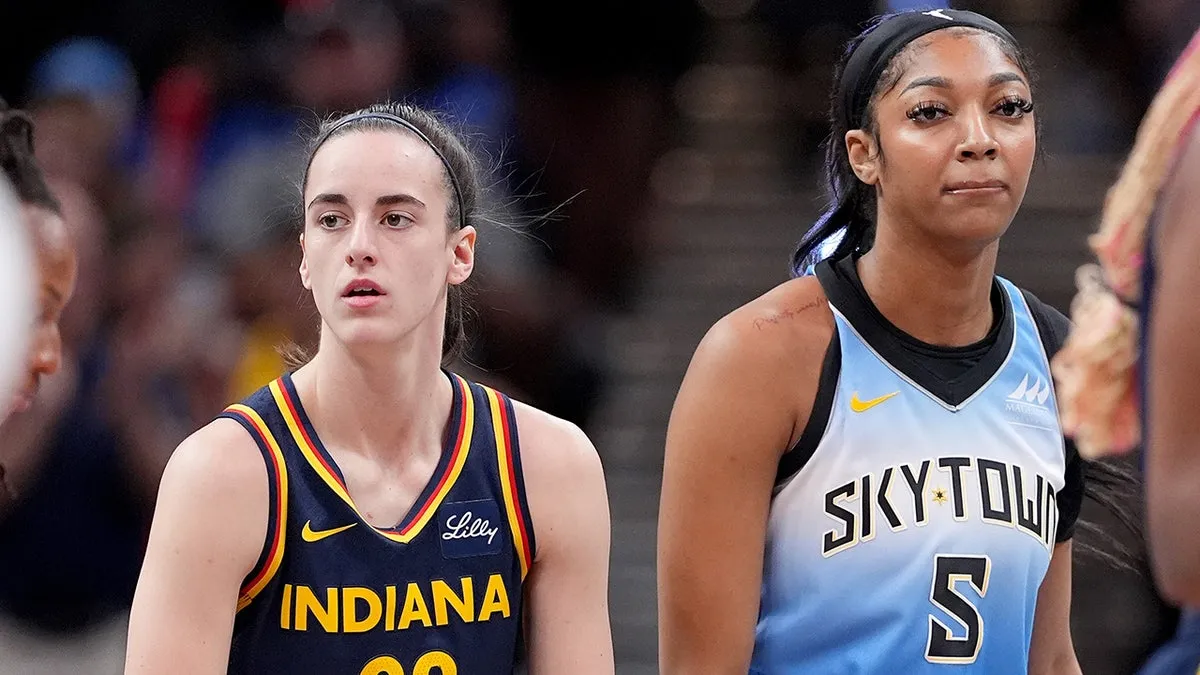In a world where social media and the media play a crucial role in public perception, coverage of sporting events has a huge power in how fans and the general public view athletes. Recently, **WNBA legend** **Lisa Leslie** spoke out strongly about the controversy surrounding media coverage of fouls against **Caitlin Clark**, the University of Iowa basketball star who has gained notoriety for her on-court prowess and charismatic personality. According to Leslie, some reports are distorting the narrative by giving the impression that Clark was “attacked” on the field, and she calls for greater **fairness and accountability** in sports journalism.

Caitlin Clark has been one of the brightest stars in college basketball in recent years, standing out not only for her ability on the court, but also for her bold playing style and media presence. However, in recent games of the NCAA Women’s Basketball Tournament, she has been the subject of a great deal of attention surrounding fouls committed against her by opposing players. In a recent game, Clark was subject to a series of aggressive defensive plays that led several media outlets to speculate on whether those fouls were excessive or part of a tactic to destabilize her.

While some sportswriters and commentators have pointed out the harshness of the calls and questioned whether the referees were being too lenient, others have emphasized that the fouls were part of normal competition in a sport as physical as basketball. As the debates intensified, however, some outlets began to suggest that Clark had been “attacked” or even that the referees were not sufficiently protecting her from unsportsmanlike conduct.

Amidst this growing controversy, Lisa Leslie, one of the most important players in the history of the WNBA and a reference in women’s basketball, decided to intervene in the conversation. In a recent appearance on a sports show, Leslie expressed her concern about how the media was trying to portray Caitlin Clark as a victim on the court.
Leslie said that while she agreed that some of the defensive plays were tough, it was crucial not to exaggerate or distort what happened. “We can’t make it look like Caitlin was attacked,” Leslie said. “Basketball is a physical sport, and fouls are part of the game. The narrative that some are creating around this issue could give the wrong image to the public, especially younger people who are watching.” The former WNBA player stressed that rather than focusing on the fouls as an attack on Clark, it was necessary to highlight the player’s **exceptional performance** and her ability to overcome difficulties on the court.
Lisa Leslie’s comment highlights a critical point about sports coverage: **impartiality and balance** in the media. Sports journalism, while fueled by emotion and rivalry, has a responsibility to provide an accurate representation of the facts. This means not taking sides or manipulating the narrative to fit a **personal or media agenda**.
When it comes to figures like Caitlin Clark, whose popularity is on the rise and her style of play sparks debate, it’s especially important to avoid falling into the trap of emotional overexposure. A balanced approach allows fans to appreciate sporting achievements and tactics within the context of fair competition. Fouls are a natural part of any sport, and while they may spark discussion about the style of officiating or the harshness of a play, the idea that a player is being “attacked” for no reason can distract from the real aspect of the competition: the game itself.
Furthermore, coverage of such events not only affects public perception of the athletes in question, but also influences how **new generations** of players and fans understand basketball. If the media constantly creates a narrative of victimization around certain players, they may be sending the wrong message about the nature of the sport and how athletes should approach challenges on the court. Resilience, competence, and the ability to adapt to difficult situations are qualities that should be highlighted, rather than promoting a vision of constant **injustice**.
On the other hand, being one of the main **ambassadors** of women’s basketball, Lisa Leslie also reminded that **Caitlin Clark** represents much more than just exceptional talent; she is one of the figures who is helping to **change the narrative** about women’s basketball in general. Clark has been an example of leadership and skill, and her success is marking a new era for the sport, where women finally receive the attention and respect they deserve.
Leslie’s call is clear: **impartiality** is essential in sports journalism, especially when it comes to figures who are under constant public scrutiny. It’s not about minimizing what happened on the field, but about putting plays and fouls in their proper context, without resorting to interpretations that might exaggerate or distort reality. Ultimately, the goal should be to provide coverage that allows fans to enjoy basketball in its entirety, without falling into sensationalism that diverts attention from what is most important: the quality and competitive spirit of the sport.
Furthermore, such comments also underline the need for a more conscious approach in the media regarding how women’s sports are covered. In a context where gender equality is still an unresolved issue in many respects, it is crucial that female players receive the same respectful and objective coverage as their male counterparts. Avoiding sensationalism and giving voice to players like Caitlin Clark in terms of their talent, achievements and challenges is a key part of this shift towards equality in sports coverage.
Lisa Leslie’s intervention on the media coverage of the fouls against Caitlin Clark highlights a crucial point about the role of journalism in sports: the need for fairness and accountability. Basketball, like any other sport, is a competitive and physical activity where tough plays are part of the game. Creating narratives that exaggerate certain situations only serves to divert attention from the real focus: the talent and skills of the players.
Leslie’s call for more balance in media coverage is a reminder that sports journalism must be fair, objective and focused on the sport, without losing sight of the context and realities of the game. Ultimately, fans deserve to enjoy coverage that honors the essence of sporting competition without distorting the facts or creating a misleading image of the protagonists.